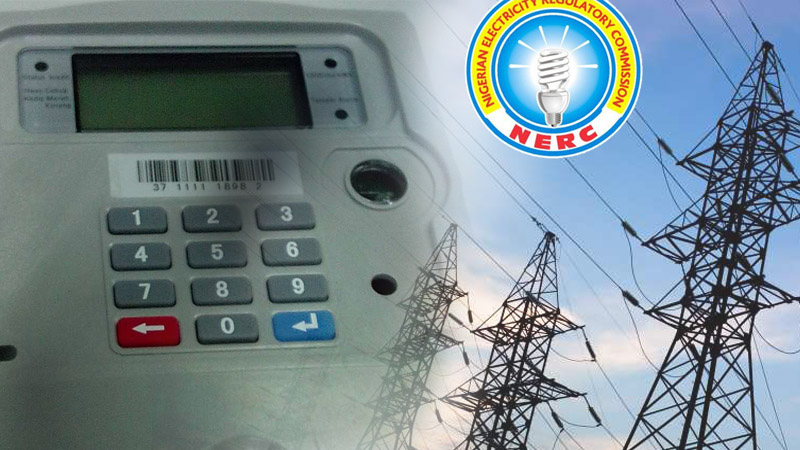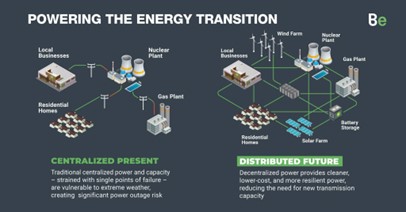 03 September 2013, Lagos – As new investors prepare to take over Nigeria’s power utilities in line with the privatisation programme, Chika Amanze-Nwachuku, Ejiofor Alike and Chineme Okafor write on the need for efficiency and accountability in the management of the power assets so as to meet expectations of the various stakeholders
03 September 2013, Lagos – As new investors prepare to take over Nigeria’s power utilities in line with the privatisation programme, Chika Amanze-Nwachuku, Ejiofor Alike and Chineme Okafor write on the need for efficiency and accountability in the management of the power assets so as to meet expectations of the various stakeholders
The power sector reform and privatisation, which started with the enactment of the Electricity Power Sector Reform Act, EPSR, on March 11, 2005 recorded a landmark success last month as 13 of the preferred bidders for the generation and distribution companies created from the unbundling of Power Holding Company of Nigeria, PHCN, paid up 75 per cent balance of their bid prices for the power assets.
An estimated N517.86 billion has been realised so far from the sale of the generation and distribution companies. The only bidder that failed to pay the outstanding balance was Interstate Electric Limited, a company promoted by billionaire businessman, Mr. Emeka Offor. Interstate Electrics won the bids for the Enugu Disco.
Poor outages have been a major brake on growth in Nigeria, pushing up the cost of business for manufacturers, thus making the country uncompetitive as an investment destination for industry. This is despite a population of over 160 million people, making the country one of the world’s largest untapped frontier markets.
To substantially boost electricity generation and supply in the country as well as make the sector commercially viable, President Goodluck Jonathan on August 26, 2010, unveiled the road map for power sector reform and outlined government’s strategies to end the decade-long electricity crisis. The power reform provided for the establishment of the Nigerian Electricity Regulatory Commission, NERC, the unbundling of PHCN and privatisation of the successor companies, winding up of the holding company and transfer of stranded assets and liabilities to an asset management company, and the establishment of a bulk trader and Transition Electricity Market, TEM, for emerging participants in the power sector.
The power privatisation witnessed stiff resistance of the labour unions in the sector, who maintained that it was not going to be in their interest. But despite the opposition by the union members and fears that preferred bidders might not meet up with the payment of outstanding balance of their bid prices for the power assets, given the difficulty faced by some of them in raising the initial 25 per cent of the offer value of their bids, the electric power privatisation programme turned out to be a huge success, as almost all the bidders met the payment deadline.
Assets Management
As the new owners of the various successor generation and distribution companies prepare to take over, stakeholders say there is the need for accountability and efficiency in the management of several other operations within Nigeria’s Electricity Supply Industry, NESI.
Centered on such demands would be the Transmission Company of Nigeria, TCN, which is responsible for the running of the country’s transmission grid; the Nigerian Electricity Regulatory Commission, NERC, which checkmates unhealthy practices amongst players and of course, the Nigerian Bulk Electricity Trading Company, NBET, also referred to as the Bulk Trader, which will see to the timely implementation and respect of contracts on purchase and distribution of bulk electricity between the generation and distribution companies.
For the TCN, which is under a management contract by Canadian firm, Manitoba Hydro International, MHI, its failure to manage the grid system, either as a result of inherent internal politicisation of roles, resistance to MHI’s contract or lack of corporate governance in planning and execution of crucial transmission projects to boost the country’s weak transmission network, will most likely pit it against generation and distribution companies, which would not tolerate unnecessary laxity as frequently displayed by the TCN.
Following the poor management track records of the PHCN, which the TCN was part of, the tendency of the company to relapse in its responsibilities, which are crucial to the growth of the power sector remains a real source of worry to stakeholders in that there is a covert gang-up by its “old war horses” to see that MHI’s efforts at enthroning transparent management of operations in the company do not see the light of the day. This may likely affect the MHI’s operation, and it may end up achieving very little before the three years contract elapses.
There is also an incremental source of funding for transmission projects, which the TCN is expected to manage under the watchful eyes of MHI, unless Manitoba compromises in view of pressures against it, these projects are expected to improve the confidence level in NESI.
As a bulk procurer and seller of electrical power and ancillary services from IPPs and successor gencos, NBET on its part, is expected to give confidence to gencos and discos in terms of its ability to offset payments for power procured from the gencos and discos payment for power sold to them.
In the event of discos breach of vesting contracts entered into with it either by delay in payment for power sold to it, the bulk trader is expected to offset payments due to the gencos from which it procured power through its replenishing capitalisation fund at least until the electricity market is adjudged matured enough for both gencos and discos to trade directly. However, the capitalisation base of the Bulk Trader has severally been put to question by IPPs on the ground that $1 billion was not enough for a sector that is aiming to achieve 20,000MW within a very short time.
The NERC on its part has the overall role of ensuring that possible competition in the sector are kept healthy while sanctioning errant activities of market participants either by withdrawal or suspension of their operational licenses. The commission will frequently review activities in the sector chiefly to ensure its smooth transition while participants work towards efficiency in the sector.
Expectations from New Investors
Stakeholders are of the view that efficiency in the sector will depend a lot on all the right indices adhered to by all players including the TCN, which is still under government ownership.
Immediate past President of the Petroleum and Natural Gas Senior Staff Association of Nigeria, PENGASSAN, Mr. Peter Esele, said the new investors should promote customer services and boost power supply to reduce unemployment.
“Some customers are asked to pay for transformers and this is wrong. MTN cannot ask subscribers to pay for base stations. We must also understand how we are being billed. If I use my money to buy meter, someone should not tell me that the meter is not my property. We are expecting efficient power system because no development can take place without stable power. The new investors should also build manpower,” he said.
“There will be challenges but it will be better than where we are coming from. Monopoly is bad in any system. Once power goes into private hands, the new investors know that they can be sued and this will make them to do better,” he added.
Esele expressed optimism that the successes recorded in the telecommunications sector would be replicated in the electricity industry, with the privatisation of the power sector.
On concern raised in some quarters that the new investors would concentrate on recouping their investment without investing fresh funds to add new values to the assets, Esele argued that no matter what the challenges are, the new dispensation would be better than where the country was coming from.
An energy and investment adviser, Mr. Iseoluwa Abiodun Johnson, suggested the winners of the distribution assets should reduce technical losses; increase revenue collection; fulfill their obligations to the generation companies and step up their game with regards to other deliverables.
“It is a new wind of opportunity for the country as a whole. There is limited quantity of power to go round. When all cylinders are firing, only a maximum of 4,500megawatts is available for distribution. The discos should ration this quantity to ensure that everybody gets something,” said Johnson, who is also a Lagos-based lawyer.
But the Western Zonal Chairman of the National Union of Electricity Employees, NUEE, Mr. Obol Ntukubes, said the expectations of the workers was that the federal government should resolve all outstanding labour issues before handing over the assets.
He told THISDAY that as soon as the government pays all their entitlements, the workers would negotiate a new condition of service with the new investors.
“They should settle all labour issues before we talk of handing over. Since the new investors are not going to bring new workers from heaven, we will negotiate new conditions of service with them on company by company basis,” he said.
On claims by the government that it had paid over N11billion to the workers, Ntukubes retorted: “What is N11billion to N480billion?”
“It means they have not started. They have not been respecting our agreement. As I talk to you now, we keep hearing that they are paying but we have not seen the payment,” he added.
THISDAY, however gathered that most of the workers in the six generation companies have been paid severance packages, while payment to the 11 distribution companies have also commenced.
“What the government has paid so far is terminal benefits. They have paid most of the gencos and they have started the discos. The discos are going to take much longer time and money. But nobody has been paid pension and the unions are insisting that the government must pay everything before handing over,” said one of the workers.
With the successful conclusion of the sale of the generation and distribution companies and eventual takeover by new investors, Nigeria’s power sector will be revitalised and expectations are that electricity-starved Nigerians will soon begin to enjoy regular power supply.
– This Day0



